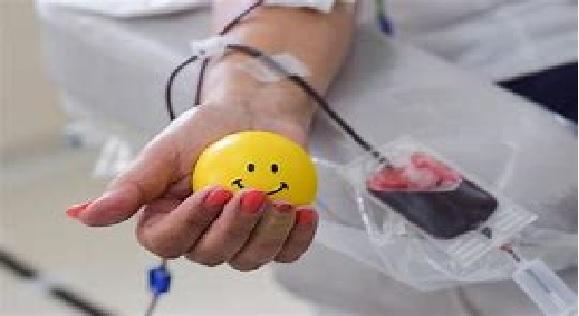
On 14 June, 2022, Nigeria joined the rest of the global community to mark the World Blood Donor Day. The annual commemoration was created to raise awareness of the need for safe blood and blood products, as well as to urge governments and national health authorities to provide adequate resources, systems and infrastructures to increase the collection of blood from voluntary, non-remunerated blood donors.
The theme of this year’s event, “Donating Blood is an Act of Solidarity. Join the Effort and Save Lives,” is a vital one that must be amplified across Nigeria and taken seriously by both government and the citizens alike. The focus, as the World Health Organisation (WHO) has noted, is to emphasise the need for committed and consistent blood donation, as well as to ensure timely access to safe blood transfusion. This is imperative as safe blood and blood products are becoming increasingly essential and critical to medical care and public health.
This message is of particular importance to Nigeria, as figures have consistently shown that the rate of voluntary blood donation across the country is currently at an abysmal level. With its over 200 million population, Nigeria is estimated to require an average of 1.8 million pints of blood annually to maintain the health of its people. However, reports from the country’s agency in charge of blood donation – the National Blood Service Commission (NBSC) – show that the agency is only able to collect about 600,000 pints of blood every year, leaving a shortfall of about 70 per cent. This poor culture of blood donation calls for the attention and action of all stakeholders in the health sector.
It was perhaps in view of this that the Minister of State for Health, Dr Olorunnimbe Mamora, while briefing newsmen on this year’s celebration, highlighted the significance of blood donation as an act of kindness, unity and harmony which every citizen of the country owes their various communities. He added that blood donation plays crucial roles in the reduction of infant and maternal mortality, deaths from traffic injuries, surgeries and other conditions, while ensuring the safety of blood units in hospitals. “It is an indispensable aspect of healthcare that contributes to saving lives in Nigeria”, he said.
Indeed, beyond the routine commemorative activities, there is need for more concerted efforts towards the actualisation of the objectives of the World Blood Donor Day in the country. The 17 blood donation centres currently operated by the NBSC across the six geo-political zones are apparently inadequate to cater for the country’s blood needs. Moreover, with increase in the activities of insurgents and other deadly armed groups, the need for more blood banks and donation centres cannot be overemphasised as many victims of these armed groups often die of blood loss and lack of emergency medical care.
In the aftermath of the recent terror attacks on a church in Owo, Ondo State, the Nigerian Medical Association (NMA) and other groups raised the alarm that there was shortage of blood to treat some of the victims and therefore pleaded for blood donations. While such calls might sometimes be expedient, we wish to state that times of emergencies are not the best to mobilise citizens for blood donation. As the WHO has noted, blood donation must be a year-long event and citizens must be mobilised and encouraged to voluntarily contribute to blood banks.
It is also concerning that reports from blood donation centres have shown that Nigerians are more disposed to paid blood donation than voluntary blood donation. Haematologists have decried this practice, noting that voluntary blood donation is the safest source of blood and blood products for patients. The NBSC has also pointed out that commercial donors are more likely to live high risk lifestyles and have a higher burden of transfusion-transmissible infections. Moreover such paid donors are also often unwilling to disclose their true health status, since their motivation for donation is monetary and not altruistic. This also underscores the need to constantly enlighten the public on the benefits of voluntary blood donation.
There is also the crucial need to effectively manage donated blood to ensure that more patients are able to benefit from the available supply. Recent medical studies have revealed that patients’ blood needs differ, as the various components of a pint of blood can save up three to three lives. This is a departure from the old procedure in which a whole pint is administered on a patient, regardless of their specific need. In view of this, we agree with the recent call by Prof. Vincent Osunkalu, a consultant haematologist at the Lagos University Teaching Hospital (LUTH) that physicians must begin to embrace the practice of blood fractionation. We believe that this will tremendously optimise availability of blood to more patients who need it.
We also urge hospital managements to promptly attend to road accidents victims and others in emergency need of blood, rather than first demanding payment. It is imperative to seek to save lives first before any other consideration, as a life lost can never be regained.










